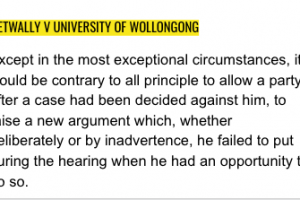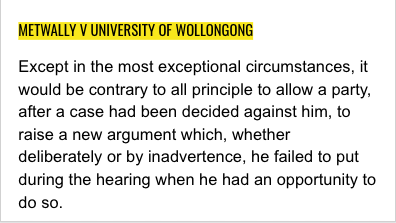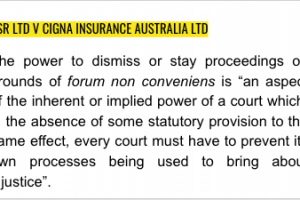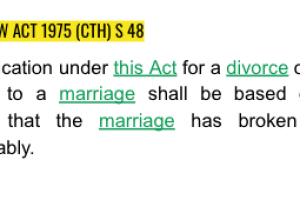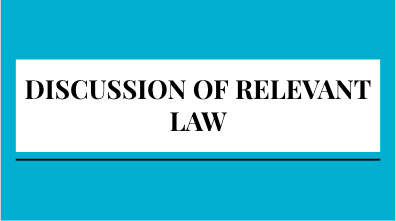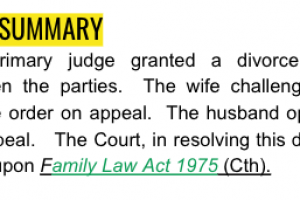- · 4663 friends
Wife Opposes Previous Divorce Order

Bakshi & Mahanta (No 2) [2022] FedCFamC1A 90 (17 June 2022)
The primary judge granted a divorce order between the parties. The wife challenges the divorce order on appeal. The husband opposes the appeal. The Court, in resolving this dispute, relied upon Family Law Act 1975 (Cth).

Facts:
The parties were both born in India, however they met and commenced a relationship in Adelaide, Australia. In September 2006, they were married by Hindu rite in City E, India. In October 2006, they were married by Christian rite in City D, India. In 2009, the husband became a permanent resident of Australia, whilst the wife obtained citizenship in 2010.
The parties separated on 12 May 2018 following an alleged incident of family violence in the matrimonial home which is located in Australia. On 9 March 2020, the wife commenced proceedings in the Family Court in City D, India, seeking a range of property orders, orders relating to “ancestral property” involving the husband’s extended family, and custody of their child. The wife provided limited evidence of the particulars of her claims in the City D court. The husband filed an Application for Divorce in the Federal Circuit Court of Australia (as it then was) two days later, on 11 March 2020.
The wife sought an order that the husband’s application for divorce be dismissed. The contested divorce hearing took place before the primary judge on 13 September 2021. The parties continue to be engaged in property settlement proceedings under the Family Law Act 1975 (Cth) (“the Act”) in the Court below (“Division 2”). The final hearing of those proceedings was due to commence in May 2022, however has now been adjourned as both parties are presently located in India and not expected to return to Australia until July 2022.
On 3 November 2021, the wife filed a Notice of Appeal from the divorce order. On 14 December 2021, the appeal registrar made procedural orders for the wife to file her Summary of Argument, List of Authorities, and Application in an Appeal to adduce further evidence by no later than 11 March 2022. On 15 March 2022, the wife filed an Application in an Appeal seeking an extension of time to file her appeal documents, and for the appeal date on 3 May 2022 to be vacated. This application was heard by Aldridge J on 24 March 2022, who granted the wife an extension of time to file her appeal documents until 15 April 2022, including an Amended Notice of Appeal.
The date of the appeal was retained for 3 May 2022. Despite the grant of the extension of time, the wife filed her appeal documents some four days late, on 19 April 2022. On 19 April 2022, the wife also filed a further Application in an Appeal seeking leave to adduce further evidence. During the hearing on 3 May 2022, the wife was granted leave to move on her late filed Application in an Appeal to adduce further evidence, supporting affidavit, Amended Notice of Appeal, and Summary of Argument. The husband made no objection to this, and he was also granted leave to rely on an affidavit filed on 26 April 2022, which broadly speaking, disputed the evidence of the wife.

Issue:
Whether or not the divorce application should be granted.

Applicable law:
Family Law Act 1975 (Cth) s 48 - provides that an application under this Act for a divorce order in relation to a marriage shall be based on the ground that the marriage has broken down irretrievably.

(a) must have regard to the evidence given in the proceedings out of which the appeal arose; and
(b) has the power to draw inferences of fact and, in its discretion, to receive further evidence, which evidence may be given:
(i) as provided for in Division 2 of Part XI of the Family Law Act 1975 ; or
(ii) by oral examination before the Court or a Judge; or
(iii) otherwise in accordance with section 73 of this Act.


Analysis:
The terms of s.48(2) of the Act are unequivocal, providing that a divorce order “shall” be made if the statutory criteria are satisfied. Once jurisdiction and the grounds for divorce were established, the primary judge had no discretion not to grant the divorce order unless he was persuaded to decline an exercise of jurisdiction, for example, by staying or dismissing the divorce application on inappropriate forum grounds.
Despite the grounds relating to forum non conveniens apparently raised by the Response, identified by the primary judge, and canvassed in the letter of advice, the wife made almost no reference to any evidence relevant to any of those grounds in resisting a divorce order. The wife’s submissions only went so far as to highlight the existence of the Indian proceedings and the fact they were commenced shortly before the proceedings in the Australian court.
The evidence did not demonstrate the wife had asked for a divorce under Indian law. Indeed, her submissions to the primary judge that the sole purpose of the Indian proceedings was to identify property interests of the husband in India, was inconsistent with any application for divorce under Indian law. The transcript indicates that the wife was served with the requisite documents. In any event, no point was taken before the primary judge about lack of service.
Conclusion:
The appellant’s Application in an Appeal filed on 19 April 2022, to file and rely upon an affidavit dated 18 April 2022, is dismissed. Appeal No. NAA 38 of 2021 is dismissed.


